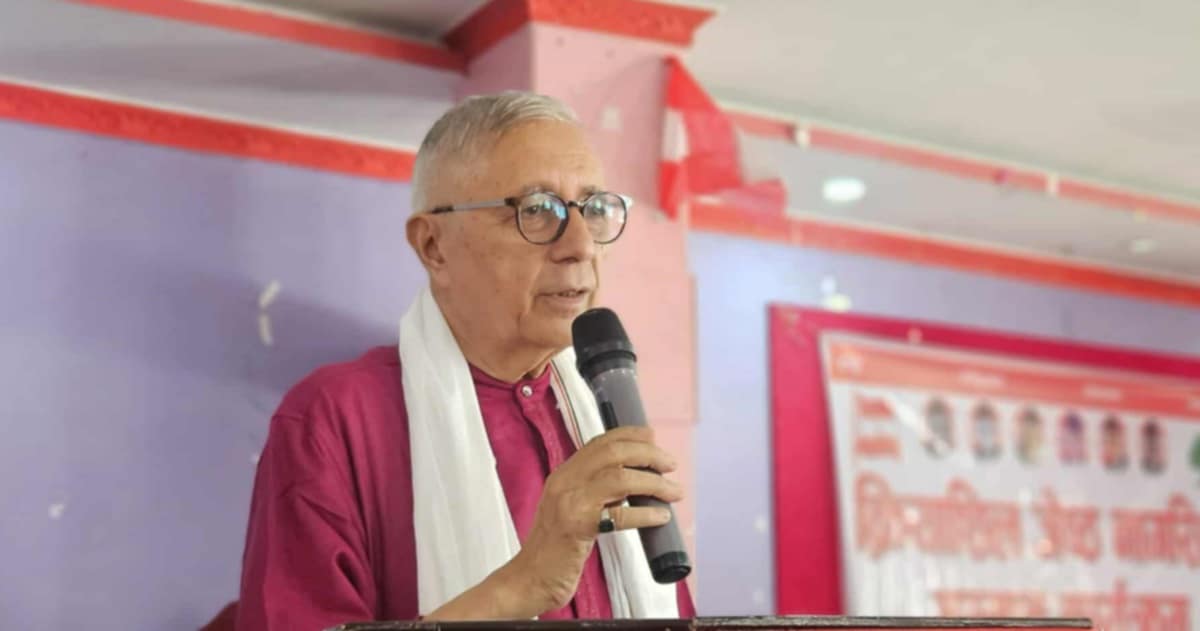

KATHMANDU: During the Gen Z protests, Nepali Congress leader Shekhar Koirala, who was in China, shared his views on September 7 and 8.
The day before the protests, he posted on Facebook that those in government must listen to the Gen-Z generation and change accordingly, or else they would face consequences.
After 19 people died during the protests the next day, Koirala condemned the violence. He argued that the Oli government had lost its legitimacy and called for a lawful resolution of the country’s problems under the leadership of the Gen Z generation.
On September 13, Koirala issued a statement emphasizing that Nepali society demanded rapid change, that young people sought a prosperous future, and that the Congress party should focus on that goal.
Koirala, a prominent leader outside the party’s traditional establishment, has consistently criticized the party leadership and government actions.
While several Congress leaders debated leadership changes and a special general convention after the Gen Z rebellion, Koirala remained publicly silent on this issue.
According to Koirala’s personal secretary Dinesh Thapaliya, Koirala has been working to maintain party unity, engaging in dialogue with leaders and activists from the central committee to the grassroots.
“He is in contact with leaders at all levels and motivating them to build a strong party with the youth generation,” Thapaliya said.
Nepali Congress, with its historic legacy, remains directionless and uncertain after the Gen Z rebellion. Party President Sher Bahadur Deuba, seriously injured during a violent attack on September 9, is still under security protection and receiving treatment, but has not resigned.
Amid this leadership vacuum, Congress leaders have held Zoom meetings to discuss district presidents, overseas public relations committees, and performance committees. However, the party has yet to convene a central committee meeting to deliberate on the way forward.
Central committee member Govinda Bhattarai stresses the need for a central committee discussion on navigating the party through this crisis.
After the Gen Z rebellion, some Congress leaders seeking party transformation are unwilling to accept Deuba’s leadership, advocating for his removal even outside formal procedures.
A key question now is what Shekhar Koirala, who lost the party presidency with over 40% votes in the 14th general convention, will do. Close central committee member Sanjay Gautam says Koirala is expected to make a “bold decision” soon and will hold a meeting in the coming days to finalize his position.
“Advancing the party in a new way is the only option. That’s why Koirala is consulting and taking suggestions from all leaders,” Gautam said. “Within two to four days, the party’s stance will be made public.”
Congress has faced continuous internal dissatisfaction for failing to adapt to changing times. The party’s credibility weakened due to its inability to meet the aspirations of a young, educated generation, as well as contradictions in alliances and failing to secure power despite being the largest parliamentary party.
Koirala has criticized these issues and previously emphasized forming a Congress–UML coalition government and constitutional amendments. However, once the government was formed, he became a strong critic of its actions.
Now, as the Gen Z protests challenge political parties to reform, public attention is on Koirala’s role in strengthening and transforming the party.
While general secretary Gagan Kumar Thapa has expressed willingness to resign as general secretary to push for reform, Koirala remains silent regarding party restructuring.
The interim government led by Sushila Karki has set the date for the House of Representatives election on March 5, 2026.
Koirala, according to his close central committee member Dinesh Koirala, is focused on preparing the party for elections by advocating leadership change and party transformation to make Congress a strong, people-centered party.